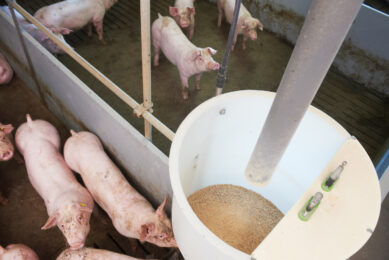Pigs developed with heart-healthy meat

A few years ago, scientists created mice that transformed unhealthy omega-6 fatty acids into beneficial omega-3 fatty acids.
This was done by transplanting a gene from the roundworm C. elegans into mice, thus raising the possibility of genetically engineering livestock with higher levels of the good fat. Now a team of researchers has realised that vision, creating several healthy pigs with meat rich in omega-3s.
A team from the University of Pittsburgh a first transferred the roundworm gene–fat-1–to pig foetal cells. After that, a team from the University of Missouri cloned those cells and transferred them into 14 pig mothers.
12 pigs were born. Six of them tested positive for the gene and its ability to synthesise omega-3 fatty acids.
Omega-3 fatty acids
Omega-3 fatty acids are well-known to protect against heart disease. However, meat from pigs, cows and other mammals typically has higher levels of omega-6 fatty acids, because of a diet of grains rich in the fat and an inability to transform it into its healthier version.
Pork generally contains roughly 15% bomega-6 fatty acids and only 1% omega-3; in contrast, omega-3s made up 8% of the engineered pigs’ total muscle fat.
Three of the six piglets subsequently had to be killed because of heart defects. These defects appear to be a result of the cloning process rather than the introduced gene.
The results of the trial are published online in Nature Biotechnology.
Related website:











